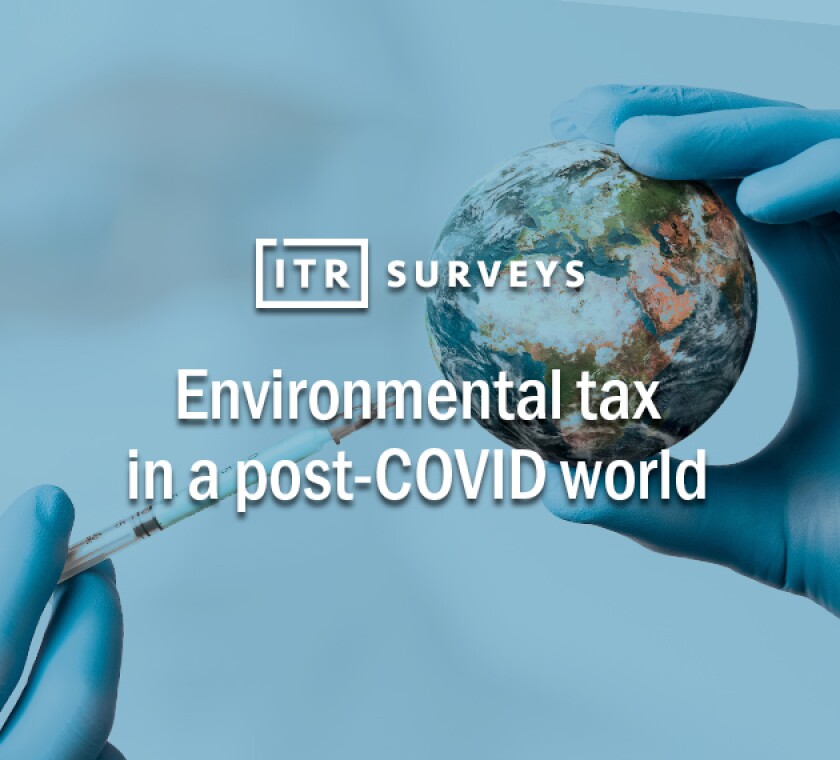Take ITR’s anonymous survey here on how environmental tax is changing, and what could happen next.
Environmental taxes are hitting the front pages, and the change of US administration is largely responsible. Since President Joe Biden’s inauguration on January 20 2021, the US has re-joined the Paris Agreement, pushed for a global minimum tax rate of 21%, and proposed to cut the country’s carbon emissions by over 50% by 2030.
Biden’s attitude towards carbon taxes is more reticent, as his Democratic party worries that such a tax would increase social inequality. French President Emmanuel Macron demonstrated the risks of regressive taxation when he faced the gilets jaunes (yellow vests) protests over a proposed fuel tax in 2018.
Yet there is increasing support for a carbon tax from industry. The American Petroleum Institute announced in March that it would endorse a carbon price, and shipping organisations representing 90% of the global fleet followed suit in April.
Meanwhile, carbon taxes won big on the world stage when the Canadian Supreme Court ruled in March that the country’s federal carbon price is legal, despite opposition from provincial governments.
Industry is increasingly in favour of taxes over environmental regulation, but the political situation remains fraught as countries argue over the best way to tackle climate change. The EU’s emissions trading system (ETS) has been criticised for ineffectiveness, but the bloc’s proposal for a carbon border adjustment mechanism (CBAM) to prevent carbon leakage was not initially received well by the US.
Biden's climate envoy John Kerry said in March that the CBAM should be a "last resort". Yet in a spectacular U-turn, by April Biden had told 40 world leaders at a climate summit that the US is considering a carbon border of its own to protect domestic industry.
Of course, environmental damage is not limited to greenhouse gas emissions, and multinational enterprises (MNEs) should consider the impact of taxes on plastics, raw materials, and the use of landfill sites. All are likely to increase in importance in the coming years.
Meat and dairy excise taxes remain on the periphery of the international tax landscape, but they are gradually gathering momentum. One study from January 2021 showed that 70% of German, French, and Dutch consumers support levies on meat, and the German Minister of Agriculture Julia Klöckner is considering options for taxing meat.
Other countries are not so keen. “We will not be imposing a meat tax on the great British banger or anything else”, commented a senior UK government official in February, according to national newspapers.
At the same time, governments are considering how the tax system affects industrial priorities. Companies want improved incentives for the green economy and renewable energy, while tax incentives for fossil fuels were recently branded a “disgrace” by teenage environmental campaigner Greta Thunberg.
In this fast-moving and politically contentious area of tax, there are many questions. Will the economic effects of COVID-19 prompt governments to move faster on environmental taxes? Which sectors will bear the brunt of reform? What changes can in-house tax directors expect in the coming years?
With your help, we hope to answer some of these questions. Please complete our anonymous survey here to share your predictions – and look out for the results in ITR’s summer edition.
For further details, or to share your opinions with the editorial team, email alice.jones@euromoneyplc.com











